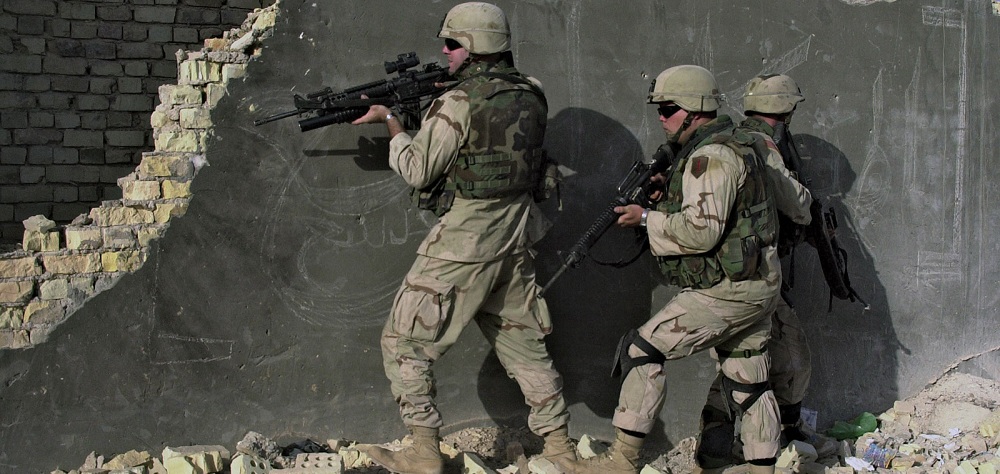Alwaght- The US-Iraq strategic negotiations started on Wednesday, with the media and observers expecting to see their outcomes with special attention.
The talks between the two countries come as a new round was raised for holding when Adel Abdul Mahdi was Iraq’s prime minister. Now the talks are held as a legacy of the previous government by the new cabinet led by Prime Minister Mostafa al-Kadhimi.
They are definitely important for both sides and will have a decisive role in the future of the Iraqi political equations.
It should be taken into account that the US seeks to expand the cooperation with Iraq from security and military sectors to others like economy and culture.
Their first bilateral agreement was on security and signed in 2009. In that year and as Barack Obama assumed the office at the White House, talks were held as the US prepared to remove its forces from Iraq. The outcome was a security pact. The pact contained terms on the form of the US troop removal from the Arab country and the model of continuation of their defense and security cooperation in the future. Rise of ISIS terrorist group in 2014 and the US decline to defend Baghdad in the initial months which saw terrorist fighters advancing so close to the capital Baghdad indicated to the Iraqis that the US is not committed to the protection of Iraq.
However, now and amid strategic talks, Americans promise Iraq that they will help it at three levels: fighting coronavirus, countering ISIS and terrorism in its entirety, and helping Iraq reconstruction as many of its cities and infrastructure were destroyed in the anti-ISIS war.
These promises on the table, the talks have started in Baghdad. But how much do these promises have a chance of realization? Most importantly, does the American presence in Iraq, as the US says, serve the Iraqi national interests and security?
The prediction is that not only this two-day meeting will not lead to a result but also the right choice for Baghdad is to avoid any new pact with Washington based on the thinking that it would be a win-win deal. There is every reason to think that not only the US presence has not been useful to Iraq so far but also it has been the source of substantial damage to the country’s infrastructure and economy.
The useless pact and the damage US inflicted on Iraq
The first US pretext for presence in Iraq and getting engaged in negotiations with Baghdad is to help reconstruct Iraq and improve its economy. But in the present conditions, the important matter is to see if the US will help Iraq or not. The important matter is to check how broad the range of the US presence damage to Iraq is.
In 2011, a team of American lawyers after investigations found that the US, Britain, and their allies inflicted over $25 trillion damages on Iraq. Here are the examples of where this alliance damaged Iraq since 2003.
Damaging Iraq’s economic infrastructures
The occupation of Iraq in 2003 since the beginning caused a wide range of ruins in the Iraqi economic foundations. A majority of the roads and facilities in various Iraqi provinces were destroyed in the bombing campaign of the US-led Western coalition on the Saddam Hussein regime.
A very important point is that the 2003 war wreaked havoc on the Iraqi economic structure, bringing it to collapse. Restoration of the Iraqi bureaucratic order and organizing it in a modern form put heavy costs on the shoulder of the post-Saddam governments.
Looting Iraq’s energy resources
What happened after ouster of Baathist regime and occupation of Baghdad was the arrival of the American and British investment companies which invested in oil and construction sectors. Over a decade, they plundered tens of billions of dollars of the US oil incomes in return for their so-called services in restoring Iraq’s oil production and rebuilding its infrastructure. But the fact is that their investments were never productive and development-propellant. They more weakened Iraq economically than helped it recover from the shocks and destruction of war.
Destroying Iraqi human sources
In addition to concrete damage, the US presence in Iraq made the country sustain harm in human resources. Thousands of obscure victims and hundreds of thousands of babies born with deformities as the American forces used depleted uranium and plutonium bombs in their bombardment are just a part of the US damages to the Iraqi people. Also, the US's role in the formation of ISIS and then failure to help Baghdad to counter the terrorist organization reveal the depth of the American huge costs on Iraq in the human resources area.
Therefore, the new Washington-Baghdad dialogue will bring losses to Iraq than positive results to the Iraqi side. As it was mentioned above, the US occupation foisted over $25 trillion on Iraq in damages to infrastructure, economy, and human resources and any new agreement with Washington will mean a waste of time and resources for Iraq.



























